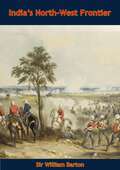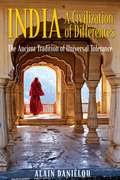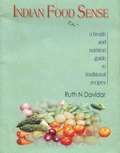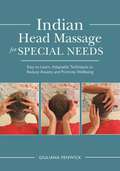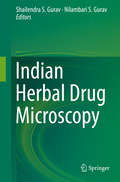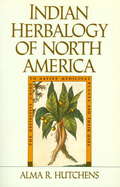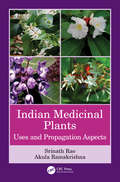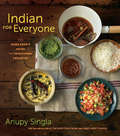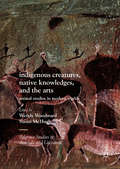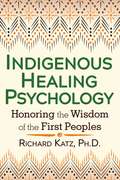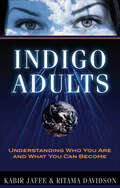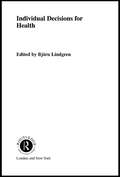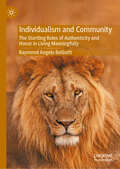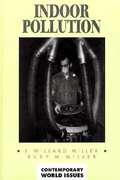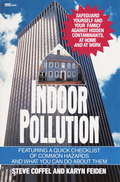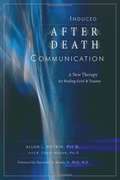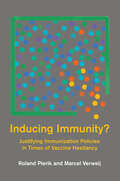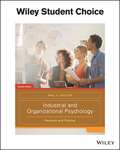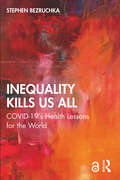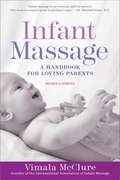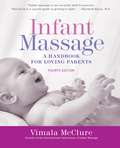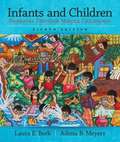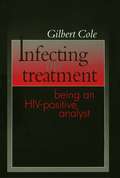- Table View
- List View
India's North-West Frontier
by Sir William BartonSir William Pell Barton KCIE CSI (29 May 1871 – 28 November 1956) had a distinguished career in the Indian Political Service. He was British Resident in Baroda (1919), Mysore (1920–25) and Hyderabad (1925–30) and was well known as an authority on the North West Frontier and the Princely states during the days of British rule in India. On leaving the service he worked as an historian of the Princely states and was a frequent contributor to periodicals on issues concerning India and Pakistan.In 1893 he passed the Indian Civil Service examinations and left England for the Punjab. He was head of several administered districts in the North West Frontier and would later move to the Indian Political Service initially as Political Agent in the Princely states of Dir, Swat and Chitral.In 1911, Barton was made secretary to Sir George Roos-Keppel, then Chief Commissioner of the North West Frontier. By 1915 he was Judicial Commissioner of the North West Frontier and was briefly British Resident in Baroda in 1919 before returning to the Frontier where he undertook political service in the short Afghan War and became Chief Political Agent with the Waziristan Field Force.Between 1920 and 1925, Barton was British Resident in Mysore and Chief Commissioner of Coorg. In 1925 he was made British Resident in Hyderabad, during which time he further established good relationships in the Princely states and was on good terms with Sir Akbar Hydari. His obituary in The Times states that ‘In all these capacities his quiet manner and innate kindness were linked with discriminating judgment and strength of purpose’.Barton was made a Knight Commander in the Order of the Indian Empire in 1927.
India: The Ancient Tradition of Universal Tolerance
by Alain DaniélouA collection of Daniélou's writings that builds a bold and cogent defense of India's caste system• Looks at the Hindu caste system not as racist inequality but as a natural ordering of diversity• Reveals the stereotypes of Indian society invented to justify colonialism• Includes never-before-published articles by the internationally recognized Hindu scholar and translator of The Complete Kama Sutra (200,000 copies sold)In classical India social ethics are based on each individual's functional role in society. These ethics vary according to caste in order to maximize the individual's effectiveness in the social context. This is the definition of caste ethics. The Indian caste system is not a hierarchy with some who are privileged and others who are despised; it is a natural ordering, an organizing principle, of a society wherein differences are embraced rather than ignored. In the caste system it is up to the individual to achieve perfection in the state to which he or she is born, since to a certain extent that state also forms part of a person's nature. All people must accomplish their individual spiritual destinies while, as members of a social group, ensuring the continuity of the group and collaborating in creating a favorable framework for all human life--thereby fulfilling the collective destiny of the group. The notion of transmigration provides an equalizing effect on this prescribed system in that today's prince may be reborn as a woodcutter and the Brahman as a shoemaker.In India: A Civilization of Differences, Daniélou explores this seldom-heard side of the caste debate and argues effectively in its favor. This rare collection of the late author's writings contains several never-before-published articles and offers an in-depth look at the structure of Indian society before and after Western colonialism.
Indian Food Sense: A Health and Nutrition Guide to Traditional Recipes
by Ruth N. DavidarDivided into three parts, the first highlights nutrition values, second compiles traditional Indian recipes and third lists ingredients with regional names, various nutrients in foods, height and weight tables for Indian children and home remedies.
Indian Head Massage for Special Needs: Easy-to-Learn, Adaptable Techniques to Reduce Anxiety and Promote Wellbeing
by Giuliana FenwickThis complete manual introduces unique Indian head massage techniques to help reduce feelings of stress and anxiety, calm sensory overloads, improve sleep patterns, ease frustration and boost mental, physical and emotional wellbeing in people of all ages with special needs, including Autism Spectrum Disorders. The book provides everything you need to get started, including: - A full, step-by-step, illustrated massage routine - Essential tips on how to create the perfect environment and how to approach clients with special needs - Detailed case studies - Information on anatomy, physiology and the complementary approaches to the body - Supplementary information on essential oils Developed by Giuliana Fenwick through work with her son, and extensively trialled in schools and specialist colleges, this tailored Indian head massage is perfect for anyone looking to provide additional support to people with special needs, including parents and carers, teachers, teaching assistants and other school staff, complementary therapists and any other professionals working with people with special needs.
Indian Herbal Drug Microscopy
by Shailendra S. Gurav Nilambari S. GuravAdulteration and misidentification of herbal drugs can cause serious health problems to consumers. The first step in quality control of medicinal plants is ensuring the authenticity of the desired species for intended use, with anatomical study playing a critical role in identifying and authenticating medicinal plants. A product of numerous years of experience and research, Indian Herbal Drug Microscopy is a vital resource for identifying and evaluating Indian medicinal plants. Comprised of four concise and comprehensive chapters, the book presents stepwise procedures for sectioning of plant material, histo-chemical staining techniques, and the anatomy of forty well-known and medicinally important plants, including Arjuna, Ashoka, Ashwagandha, Cinchona, Cinnamon, Ginger, Kurchi, Rauwolfia, Turmeric, Tulsi, and Vasaka. The book is also supplemented with color photographs and hand-drawn microscopic images. Written by authorities in the field, Indian Herbal Drug Microscopy is a valuable guide for herbal drug microscopy of Indian medicinal plants.
Indian Herbalogy of North America
by Alma R. HutchensFor more than twenty years this pioneering work had served as a bible for herbalists throughout the world. It is an illustrated encyclopedic guide to more than two hundred medicinal plants found in North America, with descriptions of each plant's appearance and uses, and directions for methods of use and dosage. Native American traditions are compared with traditional uses of the same plants among other cultures where the science of herbs has flourished, particularly in Russia and China. Included is an annotated bibliography of pertinent books and periodicals.
Indian Medicinal Plants: Uses and Propagation Aspects
by Akula Ramakrishna Srinath RaoThe demand for medicinal plants is increasing, and this leads to unscrupulous collection from the wild and adulteration of supplies. Providing high-quality planting material for sustainable use and thereby saving the genetic diversity of plants in the wild is important. In this regard, the methods of propagation of some important medicinal plants are provided along with the traditional methods of propagation. Indian Medicinal Plants: Uses and Propagation Aspects offers a unique compendium of more than 270 medicinal plant species from India with detailed taxonomic classifications based on the Bentham and Hooker system of classification. Salient Features: Provides traditional methods of propagation and discusses the propagation of medicinal plants Presents plant properties, plant parts and chemical constituents Describes the medicinal uses of more than 270 medicinal plant species from India This book is of special interest to practitioners of alternative medicine, students of Ayurveda, researchers and industrialists associated with medical botany, pharmacologists, sociologists and medical herbalists.
Indian for Everyone: The Home Cook's Guide to Traditional Favorites
by Anupy SinglaThe bestselling author of The Indian Slow Cooker and Vegan Indian Cooking serves up a stunning and comprehensive cookbook that “may be her best yet” (Publishers Weekly, starred review).Anupy Singla is America’s favorite authority on Indian home cooking, and her expertise with delicious, healthful recipes has endeared her to fans the world over. This new book opens up the true simplicity and flavor of Indian food for anyone, regardless of dietary restrictions, expertise, or familiarity.Singla has chosen the cuisine’s most popular dishes and, unlike other Indian cookbooks, embedded different preparation styles and ingredients into every recipe. Included are quick-and-easy adaptations for making a meal vegetarian, vegan, or gluten-free, as well as alternatives for the slow cooker. Beginners appreciate the book’s step-by-step instructions, while veterans find it useful as a reference point for their favorite dishes, including little-known instructions and standard cook times. The book also caters to healthy eaters and folks with allergies and dietary preferences.With deeply personal, detailed stories behind these recipes, readers see how traditional Indian cooking helped connect Singla and her daughters to their cultural heritage. More than the next great Indian cookbook, this is the next great American cookbook—sure to become a staple of every family’s collection.“Indian for Everyone has recipes for native Indians, non-Indians, vegetarians, vegans, and meat-lovers; it offers dishes from restaurant menus and simpler ones prepared at home.” —The Boston Globe“Only have room for one go-to book for Indian home cooking on your shelf? This is it.” —Booklist, Top Ten Food Books of 2015
Indigenous Creatures, Native Knowledges, and the Arts
by Wendy Woodward Susan MchughThis volume illuminates how creative representations remain sites of ongoing struggles to engage with animals in indigenous epistemologies. Traditionally imagined in relation to spiritual realms and the occult, animals have always been more than primitive symbols of human relations. Whether as animist gods, familiars, conduits to ancestors, totems, talismans, or co-creators of multispecies cosmologies, animals act as vital players in the lives of cultures. From early days in colonial contact zones through contemporary expressions in art, film, and literature, the volume's unique emphasis on Southern Africa and North America - historical loci of the greatest ranges of species and linguistic diversity - help to situate how indigenous knowledges of human-animal relations are being adapted to modern conditions of life shared across species lines.
Indigenous Healing Psychology: Honoring the Wisdom of the First Peoples
by Richard KatzConnecting modern psychology to its Indigenous roots to enhance the healing process and psychology itself • Shares the healing wisdom of Indigenous people the author has worked with, including the Ju/’hoansi of the Kalahari Desert, the Fijians of the South Pacific, Sicangu Lakota people, and Cree and Anishnabe First Nations people • Explains how Indigenous perspectives can help create a more effective model of best practices in psychology • Explores the vital role of spirituality in the practice of psychology and the shift of emphasis that occurs when one understands that all beings are interconnected Wherever the first inhabitants of the world gathered together, they engaged in the human concerns of community building, interpersonal relations, and spiritual understanding. As such these earliest people became our “first psychologists.” Their wisdom lives on through the teachings of contemporary Indigenous elders and healers, offering unique insights and practices to help us revision the self-limiting approaches of modern psychology and enhance the processes of healing and social justice. Reconnecting psychology to its ancient roots, Richard Katz, Ph.D., sensitively shares the healing wisdom of Indigenous peoples he has worked with, including the Ju/’hoansi of the Kalahari Desert, Fijians native to the Fiji Islands, Lakota people of the Rosebud Reservation, and Cree and Anishnabe First Nations people from Saskatchewan. Through stories about the profoundly spiritual ceremonies and everyday practices he engaged in, he seeks to fulfill the responsibility he was given: build a foundation of reciprocity so Indigenous teachings can create a path toward healing psychology. Also drawing on his experience as a Harvard-trained psychologist, the author reveals how modern psychological approaches focus too heavily on labels and categories and fail to recognize the benefits of enhanced states of consciousness. Exploring the vital role of spirituality in the practice of psychology, Katz explains how the Indigenous approach offers a way to understand challenges and opportunities, from inside lived truths, and treat mental illness at its source. Acknowledging the diversity of Indigenous approaches, he shows how Indigenous perspectives can help create a more effective model of best practices in psychology as well as guide us to a more holistic existence where we can once again assume full responsibility in the creation of our lives.
Indigo Adults: Understanding Who You Are and What You Can Become
by Kabir Jaffe Ritama DavidsonA New Age guide for to help individuals determine if they or their family members are part of a collective called to a higher purpose in the Aquarian age.Are you an Indigo Adult Soul and don’t know it?A new type of person is coming into incarnation right now, almost a “next step” in human evolution. These people hold great hope for the future—the promise of a new humanity and civilization. They are visionary and creative, progressive and independent. They carry new energies and manifest different ways of thinking and feeling.These people are called “Indigo,” because the color indigo (the color seen in the “third eye”) is unusually prominent in their aura. You may be familiar with the concept of “Indigo Children” and never realized that there are also Indigo adults . . . or that you might be one of them!Do you feel different? Do you experience:Unusual sensitivities?Feelings of being separate or misunderstood?Frustrations and dissatisfactions with the “normal” world?A deep feeling, thinking, and introspective nature?A driving need to contribute to creating a better world?A powerful longing for something more?Indigo Adults is rooted in the authors’ personal experiences of the subtle dimension of life and reflects their explorations into the esoteric and mystic teachings of many traditions. This subtle dimension is not tangible to our “normal” analytical mind, and it is only beginning to be scientifically documented. Take what the authors are presenting as a hypothesis. Experiment with it, and come to your own conclusions.Indigo Adults will help you identity if you (or your children) are Indigos and understand yourself, and especially your purpose on Earth more clearly.
Individual Decisions for Health
by Björn LindgrenAlthough economics is a relative newcomer to research into the determinants of good health, its significance should not be under-estimated. This book poses the important question of whether economic theory can be developed to explain why people engage in activities that are obviously a danger to their long-term health.In looking first at the indivi
Individual Differences: Theories and Applications
by Vivian Shackleton Clive FletcherHow people differ from one another in their behavior.
Individualism and Community: The Startling Roles of Authenticity and Honor in Living Meaningfully
by Raymond Angelo BelliottiThis book is a philosophical investigation of the concepts of honor and authenticity, informed by the paradoxes of the individual-community continuum. To achieve this difficult balancing act, the author refines our concepts of both honor and authenticity. Raymond Angelo Belliotti begins by investigating honor as a moral and social framework, analyzing its historical significance, particularly within the Roman aristocracy, and its portrayal in The Godfather. He then turns to military honor codes, exploring their ethical implications and challenges. From there, the discussion transitions to existentialist notions of authenticity as articulated by Nietzsche, Kierkegaard, Heidegger, Sartre, and Camus, assessing both their insights and limitations. Ultimately, the work argues for a revised understanding of authenticity. Marrying the notions of authenticity and honor, the reader is offered a path toward living a more meaningful and purposeful life.
Indoor Pollution
by E. Willard Miller Ruby M. MillerThe presence of polluted air in the home from heating and cooking food is as old as civilization itself. In modern times the general public only became aware of the health hazards when the number of household chemicals increased dramatically in the twentieth century. Few governmental regulations have been passed to regulate the home environment. The concept that the home is a man's castle has delayed the passing of governmental regulations that control the quality of the indoor environment. Standards are, however, being established by many private organizations.
Indoor Pollution
by Steve CoffelWe all know there are health hazards in the air outside, but this powerful new book warns that we aren't safe within our homes or offices either. The most comprehensive work available on this pressing issue covers publicized pollutants like asbestos, radon, and cigarette smoke, as well as the secret contaminants in our heating, electrical, and plumbing systems.From the Trade Paperback edition.
Induced After Death Communication: A New Therapy for Healing Grief and Trauma
by Allan L. Botkin R. Craig HoganInduced After-Death Communication (IADC) is a new therapy for grief and trauma that has helped thousands of people come to terms with their grief by allowing them the experience of private communication with their departed loved ones. Botkin, a clinical psychologist, created the therapy while counseling Vietnam veterans in his work at a Chicago area VA hospital. Botkin recounts his initial accidental discovery of IADC during therapy sessions with Sam, a Vietnam vet haunted by the memory of a Vietnamese girl he couldn't save. During the session, quite unexpectedly, Sam saw a vision of the girl's spirit, who told him everything was okay; she was at peace now. This single moment surpassed months-years-of therapy, and allowed Sam to reconnect with his family. Since that 1995 discovery, Botkin has honed IADC and used it to successfully treat countless patients-the book includes dozens of case examples-and has taught the procedure to therapists around the country. Induced After-Death Communication is the inside story of a revolutionary therapy that will profoundly affect how grief and trauma are understood and treated.
Inducing Immunity?: Justifying Immunization Policies in Times of Vaccine Hesitancy (Basic Bioethics)
by Roland Pierik Marcel VerweijWhy immunization must be made mandatory in times of vaccine hesitancy, and how we can design and implement immunization policies in a practical, trustworthy, and democratic way.We live in perilous times when a significant number of citizens are either defiantly antivaccination or hesitant to accept vaccinations for themselves or for their children. In Inducing Immunity?, legal philosopher Roland Pierik and bioethicist Marcel Verweij, explore ways to regulate collective immunization in as democratic a manner as possible. Approaching the problem as a matter of a conflict between the responsibility of government to protect public health and the basic right to freedom of citizens, Pierik and Verweij argue that John Stuart Mill&’s harm principle—the idea that individuals should be free to act so long as their actions do not harm others—offers a strong basis for coercive immunization policies.Covering childhood immunization policies, as well as vaccination programs aimed at adult citizens, the authors argue that a coercive immunization policy in any liberal democracy must first satisfy the principle of proportionality. This leads them to an in-depth exploration of the role of exemptions, the nature of coercion, and the contents of vaccination programs. In the final part of the book, the authors also discuss the importance and scope of freedom of speech, given how the current spread of misinformation has undermined confidence in vaccines.Offering an in-depth analysis in bioethics and legal philosophy, Inducing Immunity? is a sensible and applicable guide for health professionals, policymakers, and academics alike on how we can—and must—do better with our immunization policies.
Industrial and Organizational Psychology: Research and Practice
by Paul SpectorThe field of industrial and organizational psychology continues to see attention and growth and has become one of the major applied specialties in the study of psychology. Since findings from research in this field are relevant to everyone who has held a job, and the field has developed proven methods that businesses and organizations need, industrial and organizational psychology is an excellent demonstration of how society can benefit from the study of psychology. The 6th Edition of Industrial and Organizational Psychology incorporates all new and updated literature that has been written on the topic since the 5th edition. Spector's goal is to provide an overview and comprehensive understanding of organizational psychology. Each of the major areas that comprise industrial and organizational psychology is covered in five parts: introduction to the discipline; assessment of jobs, performance, and people; selecting and training employees; the individual and the organization; and the social context of work.
Inequality Kills Us All: COVID-19's Health Lessons for the World
by Stephen BezruchkaThe complex answer to why the United States does so poorly in health measures has at its base one pervasive issue: The United States has by far the highest levels of inequality of all the rich countries. Inequality Kills Us All details how living in a society with entrenched hierarchies increases the negative effects of illnesses for everyone. The antidote must start, Stephen Bezruchka recognizes, with a broader awareness of the nature of the problem, and out of that understanding policies that eliminate these inequalities: A fair system of taxation, so that the rich are paying their share; support for child well-being, including paid parental leave, continued monthly child support payments, and equitable educational opportunities; universal access to healthcare; and a guaranteed income for all Americans. The aim is to have a society that treats everyone well—and health will follow.
Inequality Kills Us All: COVID-19's Health Lessons for the World
by Stephen BezruchkaThe complex answer to why the United States does so poorly in health measures has at its base one pervasive issue: The United States has by far the highest levels of inequality of all the rich countries. Inequality Kills Us All details how living in a society with entrenched hierarchies increases the negative effects of illnesses for everyone. The antidote must start, Stephen Bezruchka recognizes, with a broader awareness of the nature of the problem, and out of that understanding policies that eliminate these inequalities: A fair system of taxation, so that the rich are paying their share; support for child well-being, including paid parental leave, continued monthly child support payments, and equitable educational opportunities; universal access to healthcare; and a guaranteed income for all Americans. The aim is to have a society that treats everyone well—and health will follow.
Infant Massage (Fourth Edition): A Handbook for Loving Parents
by Vimala McclureMaster the techniques of infant massage and incorporate this joyful and wonderful healing art into your baby’s life with this revised and updated edition.For generations, mothers around the world have known that the soft touch of their hands soothes, calms, and communicates their love to their babies. The latest scientific research confirms that physical affection is vital to the development and wellness of children—easing discomfort, releasing tension, improving sleep, helping premature infants gain weight, even aiding asthmatic children to improve their breathing. Now Vimala McClure, founder of the International Association of Infant Massage, has revised and updated her beloved classic. Inside you’ll find • specific routines tailored to help relieve colic, fever, and chest and nasal congestion • easy-to-follow instructions and photographs demonstrating each step • new information on the benefits of skin-to-skin contact • instructions for premature infants and babies with special needs • lullabies, rhymes, and games to enhance the massage experience • a special chapter dedicated to fathers • compassionate advice for foster and adoptive parentsPraise for Infant Massage“Speaking as a pediatrician, the best advice I can give you is to try the techniques described in this book.”–Stephen Berman, M.D., F.A.A.P., former president, American Academy of Pediatrics “What a brilliant way to love and nurture a child! The first connection between parent and child is physical, through the body; by using the techniques Vimala McClure has developed, your parental relationship will be off to a magnificent start.”—Judy Ford, author of Wonderful Ways to Love a Child
Infant Massage: A Handbook for Loving Parents
by Vimala McclureIn this completely updated version of her renowned classic, Vimala McClure, founder of the International Association of Infant Massage, and its premier proponent in the United States, helps you master the techniques of infant massage so you can incorporate this joyful and wonderful healing art into your baby's life. She shows you why a daily massage can be one of the greatest gifts you give your child. . . and yourself. For generations mothers the world over have known that the soft stroke of their hands soothes, calms, and communicates their love to their babies. Now scientific research proves that massage can do all that and more. In INFANT MASSAGE, McClure shares how massage benefits children - easing discomfort, releasing tension, helping premature infants gain weight, even helping asthmatic children improve breathing function. She explains each step of the massage process with simple easy-to-follow instructions and delightful photographs demonstrating each stroke. You'll also find: - Specific routines tailored to help relieve colic, fever, chest and nasal congestion - Modified instructions for premature infants and babies with special needs - Helpful hints on dealing with crying and fussing - Lullabies, rhymes, and games to enhance the massage experience - Guidance for teaching children about "good touch" - A special chapter dedicated to fathers - Compassionate advice for foster and adoptive parents - And much more. . .
Infants and Children: Prenatal through Middle Childhood, Eighth Edition
by Laura E. Berk Adena B. MeyersA best-selling, chronologically organized child development text, Berk and Meyers’ Infants and Children: Prenatal Through Middle Childhood is relied on in classrooms worldwide for its clear, engaging writing style, exceptional multicultural and cross-cultural focus, rich examples, and long-standing commitment to presenting the most up-to-date scholarship while also offering students research-based, practical applications that they can relate to their personal and professional lives. The authors takes an integrated approach to presenting development in the physical, cognitive, emotional, and social domains; emphasize the complex interchanges between heredity and environment; and provide exceptional attention to culture.
Infecting the Treatment: Being an HIV-Positive Analyst
by Gilbert ColeThe revelation of being HIV positive continues to be a discourse fraught with meaning. In Infecting the Treatment: Being an HIV-Positive Analyst, Gilbert Cole offers an intimate and deeply insightful examination of disclosure of his HIV seropositivity on his analytic sense of self and on his clinical work with patients. Cole begins his journey of discovery by meditating on the meanings that being HIV positive have had for him, and by situating these personal meanings within the multiple meanings of HIV seropositivity generated by our culture, leading to a clinical discussion of the pros and cons of disclosure to one's patients. What begins as a consideration of disclosure of an ostensibly medical fact, opens to an exploration of the broader problematic of disclosure in the context of questions of sameness and difference, of dependence and autonomy, and of the ethical ground of psychoanalytic practice. He illuminates these issues by circling back to his own predicament, which took the form of an apparent conflict between his self-image as a psychoanalytic therapist committed to a psychoanalytic treatment approach and aspects of his self-experience that seemed uncomfortably dissonant with this identity and this commitment. He approached resolution of this conflict when he became able to use his HIV seropositivity as a metaphor for aspects of the treatment process. Comprising Cole's personal engagement of the issues inherent in being an HIV-positive analyst, his report of clinical work attendant to disclosure of his condition, and a research project compiling the experiences of other HIV-positive analysts, Infecting the Treatment is an intimate and deeply insightful examination of the impact of one analyst's disclosure of HIV seropositivity on his analytic sense of self. With admirable candor and uncommon thoughtfulness, Cole shows how the analyst's disclosure of information of the most meaningful sort may deepen and even transform the therapeutic dialogue.
